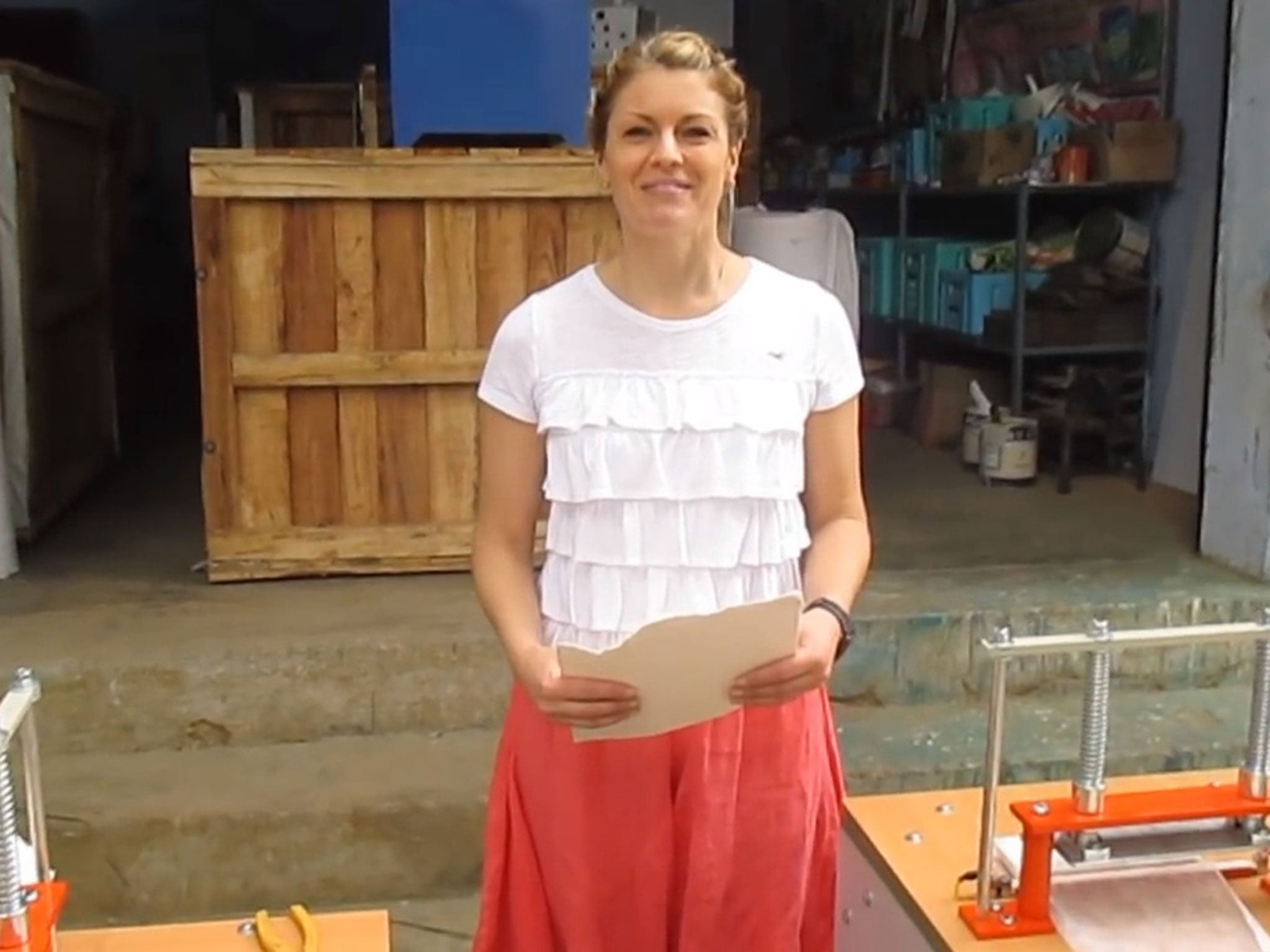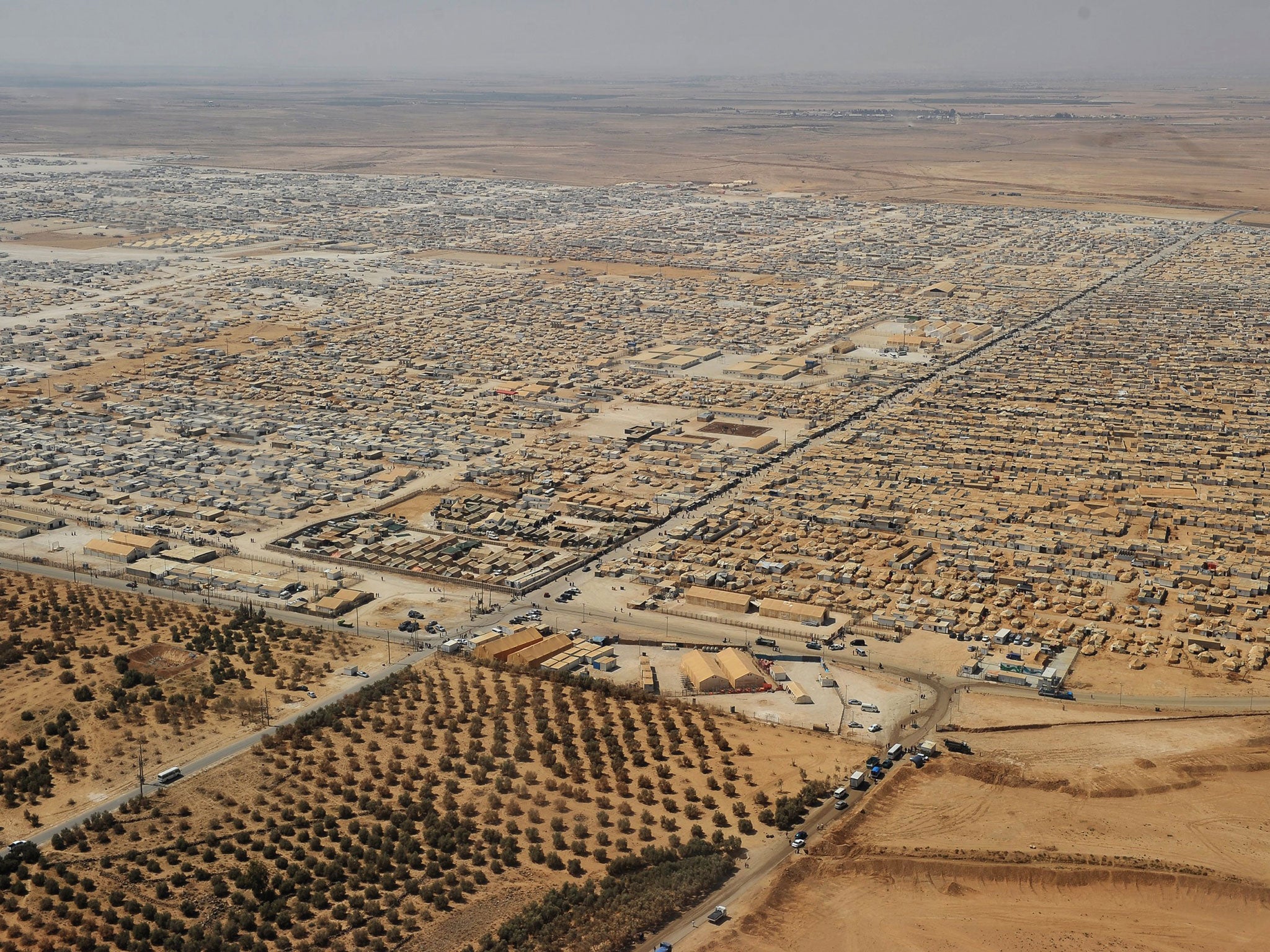The 'sanitary pad missionary' bringing dignity and jobs to Syria's female refugees
Amy Peake's work has led to the establishment of a small sanitary pad factory in Jordan's Zaatari refugee camp, where women are taught to make their own feminine products

A yoga teacher has been dubbed the ‘sanitary pad missionary’ after establishing a factory enabling women to create the menstrual products in a refugee camp in Jordan.
Amy Peake, from Cornwall, was inspired to help refugees in Zaatari, after seeing an image of Syrians queuing for food in a bombed street in Damascus, and wondering, “What if I was her? What if my children were there? And what if I got my period?”, reports the BBC.
By coincidence, on the same day, her husband showed her a news story on Arunachalam Muruganantham, an Indian man who invented a machine for women in India to produce cheap and hygienic sanitary pads.
Ms Peake immediately had the idea of using the machine to help Syria’s refugees.
“That machine should be in the refugee camps and if isn’t perhaps I should take it there,” she said recalling her thoughts to the BBC.
“It was one of those scary moments where that purpose that you have been looking for all your life is staring you right in the face.”
To this end, Ms Peake founded her charity, Loving Humanity, in 2014 with a mission to “aim to restore dignity and create social uplift by creating employment for groups of women refugees”.
And as a result of its work, the manager of the Zaatari camp has agreed to host a small factory to produce sanitary – as well as incontinence – pads, run by refugees, for those in need of these essentials among Zaatari's 80,000-strong population.
Speaking about the problems with regards to the availability of the pads in the camp on BBC’s Woman Hour today, Ms Peake said: “They are available but they’re just not great choices. They are very expensive so women just have to make really hard choices.
“They are always losing and desperate.”
Speaking to one young girl in the camp, an interpreter told the radio show: “She likes the idea of having this type of discussion with you as nobody is asking girls about how they feel about sanitary pads. She thinks it’s very close to her personal life.”
The girl said sanitary pads are distributed once every six months in the camp, but that supplies tend to run out within two months.

Even though some sanitary pads are available, girls do not want to ask their fathers to buy the products for them from the camp’s market, and they are not available to women older than 42, according to the radio report.
Many use clothes or rags to absorb the blood, discreetly washing and drying them in toilets.
As her project progressed, Ms Peake found that incontinence pads were just as vital for the refugees – particularly the elderly, disabled and unwell among them.
An interpreter for a mother of four disabled children living in the camp told Woman’s Hour: “She’s almost taking care of them. To wash their clothes, to change them, to carry them to the toilet.
“They can’t walk, they can’t use toilets. This pushes her to buy pads or diapers.
“If she can’t find money this means she has to carry them on her back to go with them to the toilets and with four children it a hard task to do every day.”
Agreeing to a pilot scheme, the camp’s manager said the factory was an interesting idea which, if successful, could be expanded elsewhere.
“The fact that we will have women working in a project here, producing something, learning a new skill, which they can also take back home when they return to Syria that is very valuable.
“We cannot but try and learn from the refugees themselves. We have to discuss with the refugees, test it out with them, see how it functions, and if it’s a success story it’s easy to replicate. The difficult thing is to have a success story.”
Ms Peake believes this is a big step forward.
“My vision is that this machine goes all over the world to help poor, under-privileged women and to help them financially in that it allows people to work.
“Once we get girls into sanitary towels they can go to school. This is actually so much more than periods.
“This is so big for women.”
Join our commenting forum
Join thought-provoking conversations, follow other Independent readers and see their replies
Comments
Bookmark popover
Removed from bookmarks